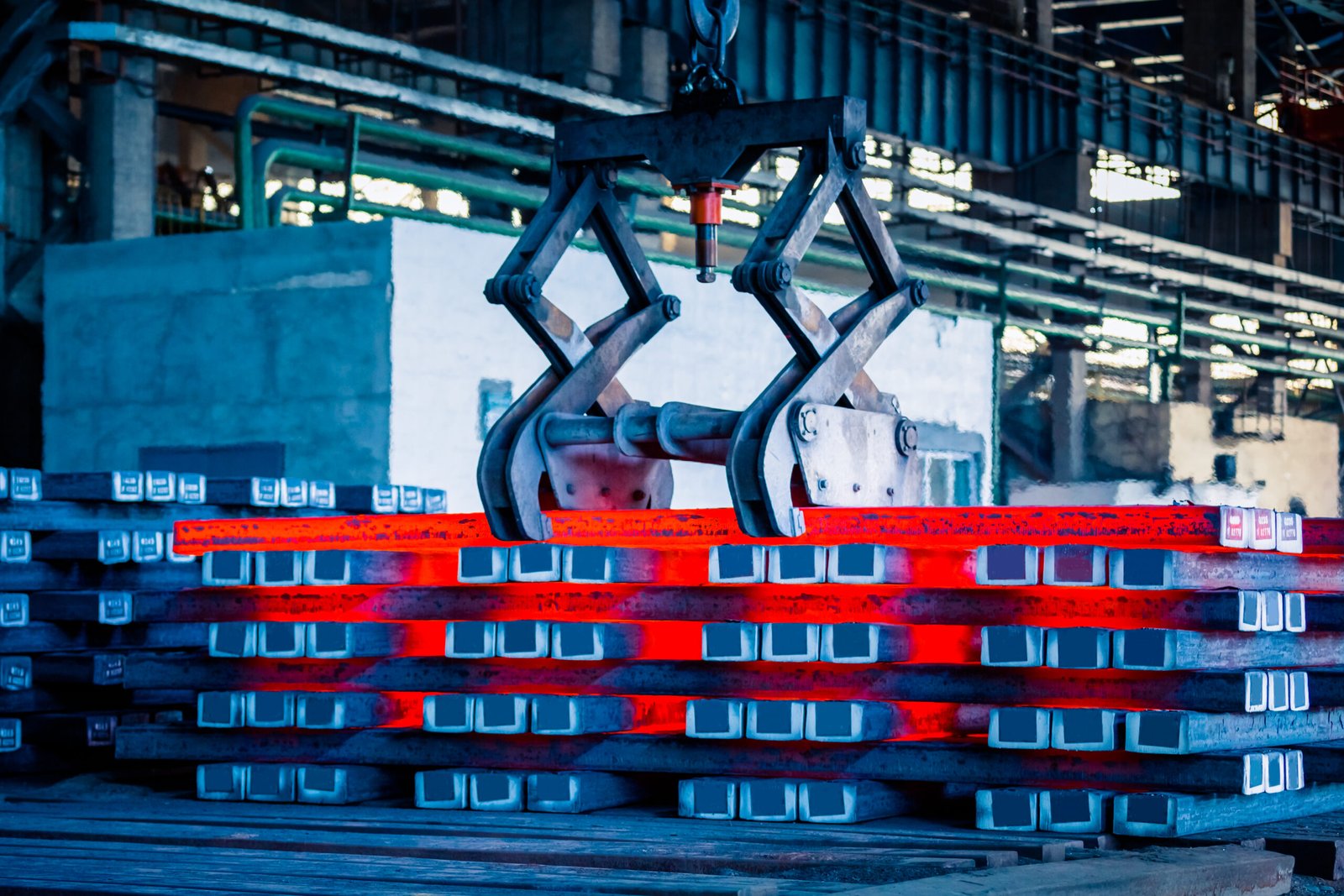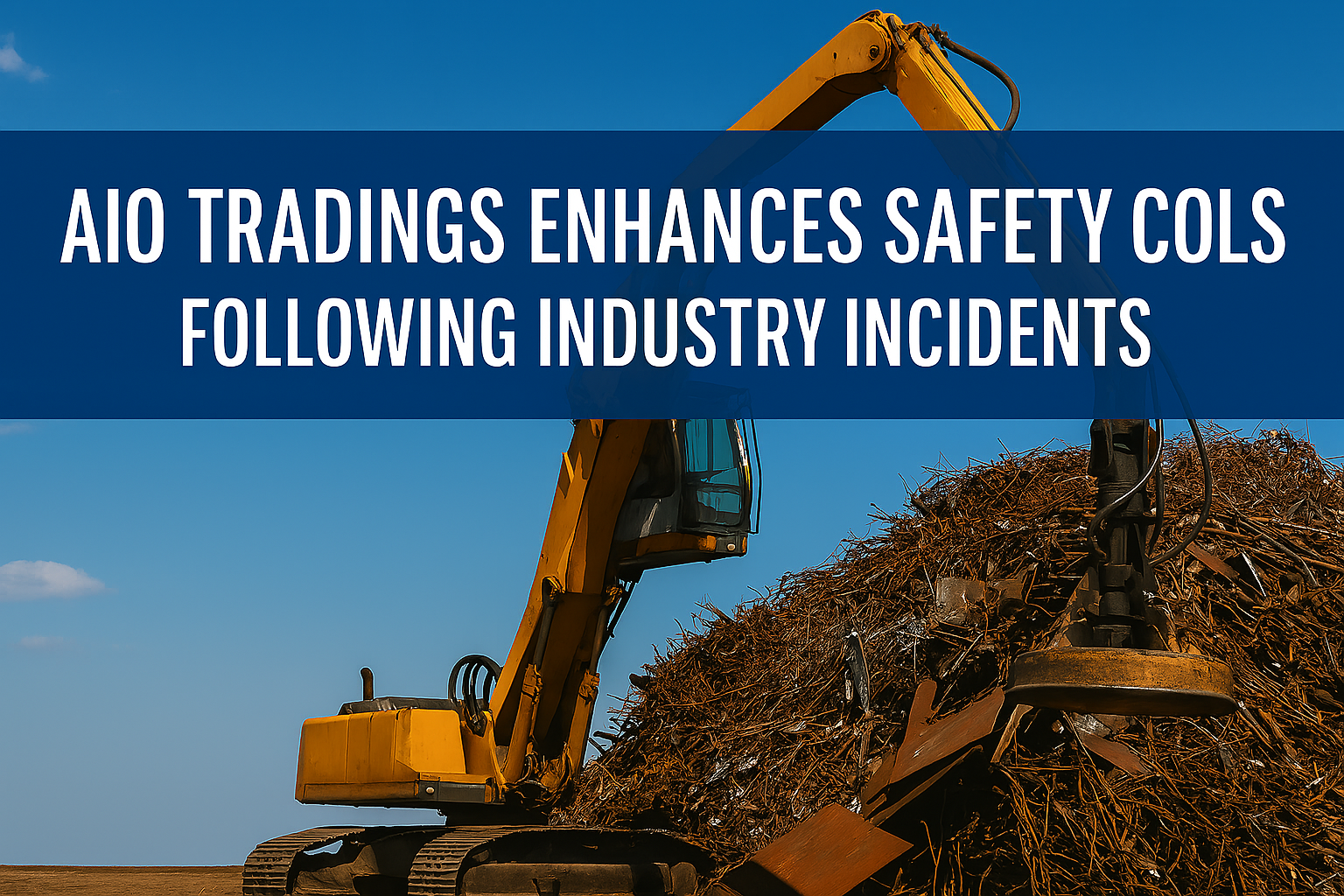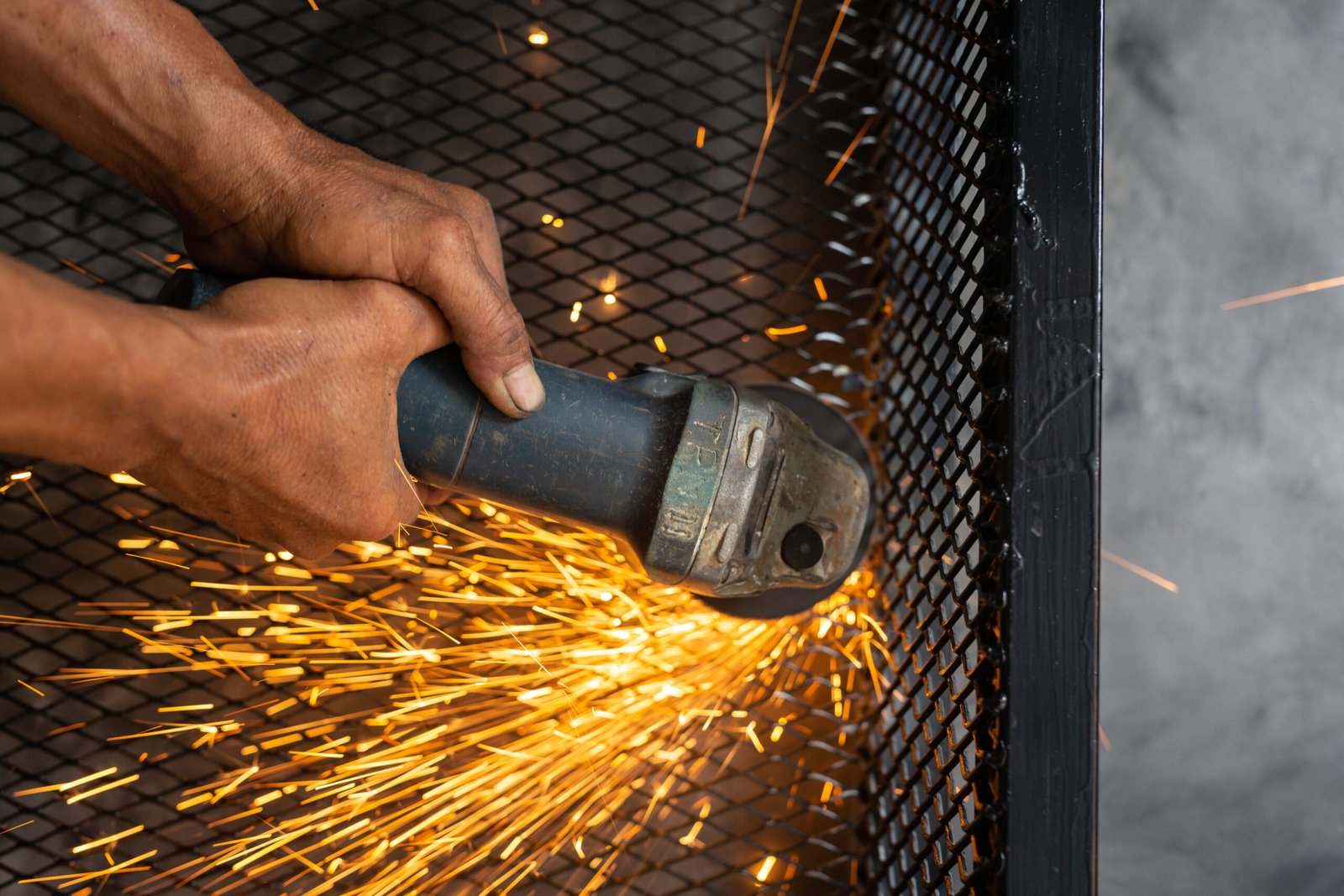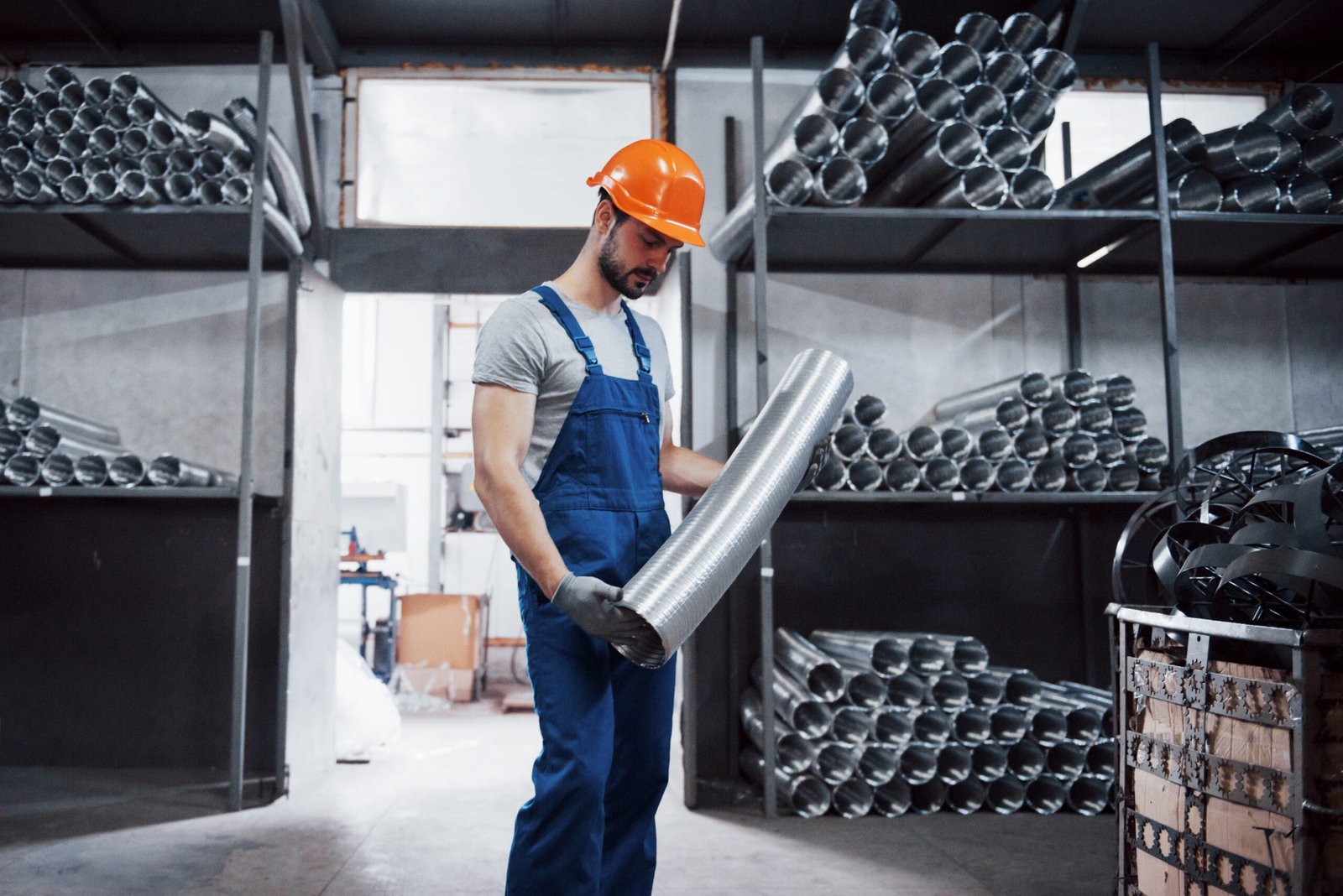Introduction
In an era defined by climate change, environmental degradation, and a pressing need for sustainable practices, industries across the globe are undergoing transformative changes. Among the sectors leading this green revolution is scrap metal recycling—a crucial, yet often overlooked, component of the circular economy. At the forefront of this movement is AIO Tradings, a forward-thinking company that has not only embraced sustainability but has made it a core element of its mission and operational identity.
AIO Tradings has recently achieved a major sustainability milestone in the realm of scrap metal recycling. This accomplishment is not just a testament to the company’s innovative strategies and commitment to green practices, but it also represents a broader shift in how businesses can thrive while protecting the planet. The company’s journey toward this milestone reflects its vision to reduce environmental impact, enhance resource efficiency, and promote responsible industrial practices.
This article delves into the story of AIO Tradings’ success—examining the steps taken, technologies leveraged, partnerships formed, and the environmental and economic impacts realized. It aims to highlight the importance of sustainable scrap metal recycling, not just as a business model, but as a necessary response to the global challenges of resource depletion and environmental harm.
Description
About AIO Tradings
Founded with the goal of redefining trade and recycling standards, AIO Tradings has steadily grown into a leading player in the global scrap metal market. The company specializes in the sourcing, processing, and trading of ferrous and non-ferrous metals, servicing a wide array of industries including construction, automotive, aerospace, and manufacturing. From its inception, AIO Tradings has recognized that waste is not the end of a product’s life, but rather the beginning of a new cycle.
Sustainability Goals and Framework
The company’s sustainability roadmap is centered on several key objectives:
- Reducing Carbon Emissions: AIO Tradings aims to reduce its carbon footprint across all stages of its operations—from logistics and processing to final delivery.
- Waste Minimization: The company is dedicated to reducing landfill contributions by optimizing its scrap metal processing and recycling techniques.
- Energy Efficiency: Implementing cutting-edge machinery and energy-efficient technologies to lower overall energy use.
- Circular Economy Promotion: Encouraging industries and consumers to embrace recycling and the reuse of materials.
- Community Engagement: Educating communities and working with stakeholders to promote sustainable practices at the grassroots level.
These goals are aligned with international environmental standards and the United Nations Sustainable Development Goals (SDGs), particularly Goal 12 (Responsible Consumption and Production) and Goal 13 (Climate Action).
Technological Advancements in Recycling
AIO Tradings has invested heavily in state-of-the-art recycling technologies that have significantly enhanced its processing efficiency and output quality. Some of the key technologies include:
- Automated Sorting Systems: Using AI-powered optical sensors, magnetic separators, and eddy current separators, AIO Tradings achieves high-precision separation of metals, ensuring better quality and yield.
- Shredding and Compacting Equipment: Energy-efficient machines that reduce scrap metal to manageable sizes with minimal waste and emissions.
- Smart Logistics Platforms: Real-time tracking and route optimization tools have reduced fuel consumption and improved logistics efficiency.
- Waste Heat Recovery Systems: Implemented in several processing units to recapture and reuse energy, lowering the need for external power sources.
These innovations have collectively reduced AIO Tradings’ processing time by 30% and energy consumption by 25% in the past two years.
Environmental Impact
By increasing its capacity to process and recycle more metal waste, AIO Tradings has achieved significant environmental benefits:
- Reduction of Greenhouse Gas Emissions: Recycling metals consumes up to 90% less energy compared to extracting virgin ores. Through its enhanced operations, AIO Tradings has prevented an estimated 50,000 metric tons of CO₂ emissions annually.
- Conservation of Natural Resources: Each ton of recycled aluminum saves approximately 8 tons of bauxite, while steel recycling reduces the need for iron ore mining. AIO Tradings has helped conserve over 200,000 tons of natural resources annually.
- Landfill Reduction: Diverting metal waste from landfills has reduced environmental pollution, groundwater contamination, and soil degradation.
Economic Contributions
Sustainability in business does not mean sacrificing profitability. In fact, AIO Tradings has demonstrated that eco-friendly practices can yield strong economic returns:
- Job Creation: New roles in engineering, logistics, environmental science, and machinery maintenance have emerged from expanded operations.
- Cost Savings: Recycled materials require less processing, reducing operational costs.
- Market Expansion: A growing number of environmentally conscious clients now prefer AIO Tradings over competitors, leading to a 40% growth in customer base.
- Investor Confidence: Green investments and ESG (Environmental, Social, and Governance) ratings have attracted more funding and partnerships.
Partnerships and Collaborations
AIO Tradings recognizes that tackling sustainability challenges requires collective effort. The company has partnered with:
- Local Governments: To promote recycling awareness campaigns and establish neighborhood collection points.
- NGOs and Environmental Groups: Collaborating on education initiatives and community clean-up drives.
- Industry Associations: Sharing best practices and supporting policy development for a more sustainable recycling ecosystem.
One standout initiative was the “Recycle to Rebuild” program, where recycled metal was used in reconstructing public infrastructure in areas affected by natural disasters.
Certifications and Recognitions
To validate its sustainability efforts, AIO Tradings has obtained:
- ISO 14001 Certification for Environmental Management Systems.
- R2 (Responsible Recycling) Certification for safe and sustainable recycling practices.
- LEED Compliant Facilities that meet green building standards.
- Environmental Excellence Awards from various government and industry bodies.
These accolades underscore the company’s commitment to both compliance and leadership in environmental stewardship.
Employee and Community Involvement
AIO Tradings fosters a culture of sustainability among its employees through:
- Green Training Programs: Educating staff on sustainability practices, waste management, and energy-saving techniques.
- Incentive Programs: Recognizing departments and individuals who contribute significantly to the company’s green goals.
- Volunteer Opportunities: Encouraging staff to participate in recycling drives, tree-planting, and environmental workshops.
The company’s community outreach has extended to schools and universities, promoting environmental education among younger generations.
Conclusion
AIO Tradings’ achievement of a significant sustainability milestone in scrap metal recycling marks a defining moment in the company’s evolution—and in the industry at large. By combining technology, strategic partnerships, and a steadfast commitment to environmental values, the company has set a new benchmark for what is possible when sustainability is prioritized.
More than a business victory, this milestone is a powerful statement: that industrial growth and environmental responsibility can coexist. AIO Tradings’ model offers a scalable, replicable framework for other companies to follow, inspiring a greener, cleaner, and more resource-efficient future.
As the global demand for raw materials grows and the consequences of climate inaction become more pronounced, companies like AIO Tradings provide a beacon of hope. Through innovation, integrity, and initiative, AIO Tradings is not just recycling metal—it’s reshaping the future of sustainable trade.




